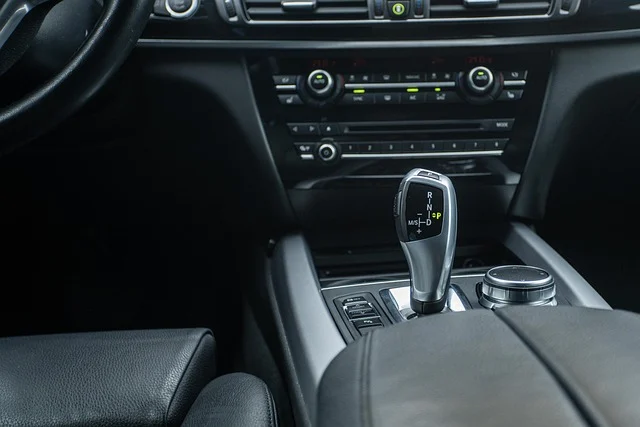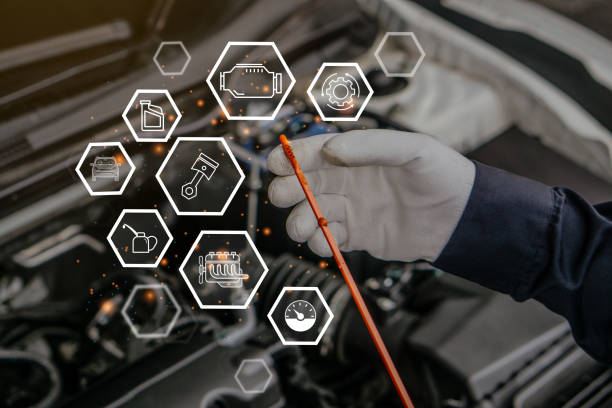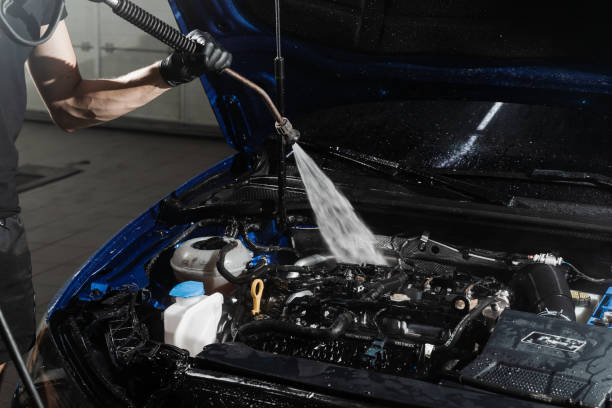Cleaning your car’s interior is just as important as maintaining its exterior shine. A powerful vacuum plays a pivotal role in achieving a spotless interior, whether you’re at a professional car wash or using your own portable vacuum cleaner. In this guide, we’ll explore everything you need to know about car wash vacuum power, factors influencing suction efficiency, and how to choose the right vacuum system for your needs.
Why Does Suction Power Matter for Car Wash Vacuums?
The suction power of a vacuum directly affects its ability to remove embedded dirt, crumbs, spills, and dust from your car’s interior. Strong suction ensures:
- Deep cleaning efficiency: Lifts dirt and grime from crevices.
- Time savings: Faster, more effective cleaning reduces effort.
- Improved hygiene: Effective dust and dirt extraction minimizes allergens.
- Better results: Professional car detailing vacuums achieve a polished finish.
Inadequate suction power can leave behind residue, making your cleaning efforts feel incomplete. That’s why understanding the science behind vacuum systems and their components is crucial.
What Determines the Suction Power of Car Wash Vacuums?

Type of Vacuum
The type of vacuum you choose impacts its cleaning capabilities:
- Central Vacuum Systems: Found in many commercial car wash locations, these systems offer consistent, heavy-duty vacuum power. They’re ideal for handling large volumes of dirt but require professional maintenance.
- Portable Vacuum Cleaners: Compact and versatile, these are great for quick cleanups but may lack the suction strength of larger systems.
- Self-Service Vacuums: Common at car washes, these vacuums provide moderate suction power suitable for general cleaning but might struggle with heavily embedded dirt.
Vacuum Motor Horsepower and Amperage
A vacuum’s motor determines its performance:
| Motor Metric | Impact on Suction Power |
| Horsepower | Higher horsepower typically equals stronger suction but can increase energy consumption. |
| Amperage | A motor with sufficient amperage ensures steady performance without overheating. |
For high-suction car vacuums, look for motors with at least 4 HP for optimal results.
Vacuum Hose Design
The vacuum hose diameter and length play a significant role:
- Diameter: Wider hoses allow for greater airflow in vacuum cleaners, enhancing suction power.
- Length: Shorter hoses maintain stronger suction, while longer hoses can reduce power due to airflow loss.
Blocked or kinked hoses also negatively impact suction. Regular inspection prevents such issues.
Filtration System
The vacuum filtration system ensures proper airflow and prevents clogging:
- HEPA Filters: Ideal for trapping fine particles, improving indoor air quality.
- Multi-Stage Filtration: Enhances durability and suction consistency by separating larger debris from finer dust.
Dirty or clogged filters reduce suction power, so vacuum filter cleaning is essential for maintaining efficiency.
Real-World Performance: Suction Power in Action

High-performance vacuum motors make it easier to tackle everyday messes. Here’s how varying suction power affects cleaning:
| Task | Low Suction Power | High Suction Power |
| Crumb and Spill Cleanup | Leaves debris behind | Thoroughly cleans even small crevices |
| Embedded Dirt Removal | Struggles with deep-seated dirt | Lifts dirt from carpets and fabric |
| Dusty Road Cleanup | Inefficient on heavy grime | Quickly clears dirt and dust |
A vacuum designed for automotive dirt extraction with sufficient suction ensures top-tier results every time.
Self-Service Vacuums: What You Need to Know
Self-service vacuums are popular for convenience but often lack the suction power of commercial car wash equipment. Here’s how to maximize their performance:
- Use appropriate car wash vacuum attachments to clean tight spaces.
- Vacuum suction optimization: Clean the hose and filters to prevent clogs.
- Choose the right time: Early hours when machines are freshly serviced tend to deliver better results.
For tougher jobs, consider using a professional car detailing vacuum or investing in a portable high-suction car vacuum.
How to Evaluate and Improve Suction Power

Checking Suction Power
To assess the vacuum’s efficiency:
- Test suction strength by observing how well it lifts small debris.
- Use airflow indicators to measure airflow consistency.
- Inspect for leaks in the hose or cracks in the vacuum cleaner design.
Troubleshooting Common Issues
If your vacuum isn’t delivering optimal performance:
- Check for hose blockages in vacuums and remove any debris.
- Clean or replace clogged filters.
- Ensure the vacuum motor sound is steady without unusual noises.
Tips to Improve Performance
- Use shorter hoses to reduce suction loss.
- Clean filters regularly to prevent clogs.
- Upgrade to energy-efficient vacuums for better suction with lower energy consumption.
Additional Factors to Consider
When choosing a vacuum for car wash use, evaluate the following:
- Durability: Opt for models designed for frequent use, like heavy-duty vacuum systems.
- Noise Levels: Low vacuum motor sound improves user comfort, especially for extended use.
- Car Wash Technology Advancements: Some newer systems offer enhanced airflow and filtration for better performance.
Frequently Asked Questions
How can I check the suction power of a car wash vacuum?
You can measure suction power by checking the vacuum’s airflow (CFM), sealed suction (inches of water lift), or amperage. Alternatively, test it by observing how effectively it removes dirt and debris.
What are “super suction” vacuums?
“Super suction” vacuums are marketed as high-performance models with advanced motors and filtration. However, always verify the specifications and user reviews to ensure they meet your needs.
Are portable vacuum cleaners effective for car interiors?
Yes, portable vacuum cleaners can be effective for quick cleanups. However, for embedded dirt removal and heavy-duty tasks, a high-suction car vacuum or commercial system is preferable.
Can I improve the suction power of my vacuum?
Yes, regularly clean the filter, check for blockages, and ensure the motor is in good condition. These steps improve vacuum suction optimization.
What attachments are useful for car detailing?
Specialized car wash vacuum attachments, like crevice tools and brush nozzles, are great for tight spaces, upholstery, and dashboards.
Conclusion
The suction power of car wash vacuums plays a vital role in effective car interior cleaning. Whether you’re using self-service vacuums, central vacuum systems, or portable vacuum cleaners, understanding the factors that influence suction efficiency helps you achieve optimal results.
By maintaining your equipment, choosing the right vacuum motor horsepower, and following suction efficiency tips, you can tackle dirt, grime, and spills with ease. For professional-grade results, consider investing in advanced car wash technology or consulting experts in car wash engineering.
A clean car isn’t just about appearances; it’s about comfort and hygiene. Use these insights to elevate your car cleaning game today!
Also Read More Article : What is the RP1210 Protocol in Cars?
